Unraveling the Topography of Idaho: A Journey Through Elevation
Related Articles: Unraveling the Topography of Idaho: A Journey Through Elevation
Introduction
With great pleasure, we will explore the intriguing topic related to Unraveling the Topography of Idaho: A Journey Through Elevation. Let’s weave interesting information and offer fresh perspectives to the readers.
Table of Content
Unraveling the Topography of Idaho: A Journey Through Elevation
Idaho, the "Gem State," is renowned for its rugged beauty, diverse landscapes, and captivating natural wonders. This picturesque state, nestled in the heart of the American West, is a testament to the power of geological forces that have shaped its unique topography. Understanding the elevation map of Idaho is crucial for comprehending the state’s natural history, appreciating its diverse ecosystems, and navigating its challenging terrain.
A Tapestry of Elevation: Unveiling Idaho’s Topography
The elevation map of Idaho reveals a captivating story of geological evolution, showcasing a dramatic range of altitudes that define the state’s diverse landscapes. From the towering peaks of the Sawtooth Mountains to the rolling plains of the Snake River Plain, Idaho presents a visual symphony of elevation, each feature telling a unique story of its formation.
The Majestic Peaks: A Legacy of Tectonic Activity
The most striking feature on Idaho’s elevation map is the presence of the Rocky Mountains, which traverse the state’s northern and central regions. These majestic peaks, including the iconic Sawtooth Mountains, are the result of intense tectonic activity, where the Earth’s crust collided and buckled, creating towering ranges. The Sawtooth Mountains, with their jagged peaks and deep, glacially-carved valleys, stand as a testament to the power of these geological forces.
The Snake River Plain: A Vast, Low-Lying Basin
In stark contrast to the towering peaks, the Snake River Plain stretches across southern Idaho, presenting a vast, low-lying expanse that stands as a testament to volcanic activity. This unique geological formation was created by massive volcanic eruptions, which deposited layers of basalt lava, forming a vast, flat plain. The Snake River, a vital artery that flows through this plain, has carved out a dramatic canyon, further highlighting the contrasting landscapes of Idaho.
The Importance of Elevation in Shaping Idaho’s Ecosystems
The elevation map of Idaho is not just a visual representation of the state’s topography; it is a key to understanding the diverse ecosystems that thrive within its boundaries. Elevation plays a crucial role in determining climate, vegetation, and wildlife distribution, creating a tapestry of ecological niches across the state.
Alpine Meadows and Subalpine Forests: A Symphony of Altitude
The higher elevations of Idaho’s mountain ranges are characterized by alpine meadows and subalpine forests, where harsh conditions and limited growing seasons create unique ecosystems. These regions are home to a variety of specialized plants and animals, including the iconic bighorn sheep, mountain goats, and marmots, which have adapted to the challenging environment.
The Snake River Plain: A Haven for Wildlife
The Snake River Plain, with its lower elevation and warmer temperatures, provides a stark contrast to the alpine regions. This area is characterized by grasslands, sagebrush steppes, and riparian habitats, supporting a diverse array of wildlife, including pronghorn antelope, mule deer, and a variety of bird species.
Navigating Idaho: Understanding the Terrain
The elevation map of Idaho is an essential tool for anyone venturing into the state’s rugged landscape. Whether you’re a hiker, a mountain biker, or a skier, understanding the elevation changes and potential hazards is crucial for safe and enjoyable outdoor adventures.
FAQs: Delving Deeper into Idaho’s Elevation
Q: What is the highest point in Idaho?
A: The highest point in Idaho is Borah Peak, located in the Lost River Range, with an elevation of 12,662 feet (3,859 meters).
Q: What is the lowest point in Idaho?
A: The lowest point in Idaho is the Snake River, at an elevation of approximately 1,540 feet (470 meters) near the Oregon border.
Q: What are some of the key mountain ranges in Idaho?
A: Some of the key mountain ranges in Idaho include the Sawtooth Mountains, the Lost River Range, the Bitterroot Mountains, the Selkirk Mountains, and the Salmon River Mountains.
Q: How does elevation affect the climate of Idaho?
A: Elevation significantly influences Idaho’s climate. Higher elevations experience colder temperatures, shorter growing seasons, and higher precipitation levels compared to lower elevations.
Tips for Navigating Idaho’s Elevation
- Plan Ahead: Before embarking on any outdoor adventure in Idaho, research the elevation changes and potential hazards of the area.
- Acclimatize Gradually: If you are traveling to high elevations, allow your body time to acclimate to the thinner air and lower oxygen levels.
- Stay Hydrated: Drink plenty of fluids, especially during physical activity at higher elevations.
- Be Aware of Altitude Sickness: Symptoms of altitude sickness include headache, nausea, dizziness, and shortness of breath. If you experience any of these symptoms, descend to a lower elevation.
Conclusion: A Tapestry of Elevation, A State of Beauty
The elevation map of Idaho is a captivating visual representation of the state’s unique topography, a testament to the power of geological forces and a key to understanding its diverse ecosystems. From the towering peaks of the Rocky Mountains to the vast, low-lying Snake River Plain, Idaho offers a tapestry of elevation, each feature contributing to the state’s unparalleled beauty and natural wonder. Understanding the elevation map is not just about appreciating the state’s landscape; it is about appreciating the intricate connection between geology, climate, and life, a connection that makes Idaho a truly remarkable place.
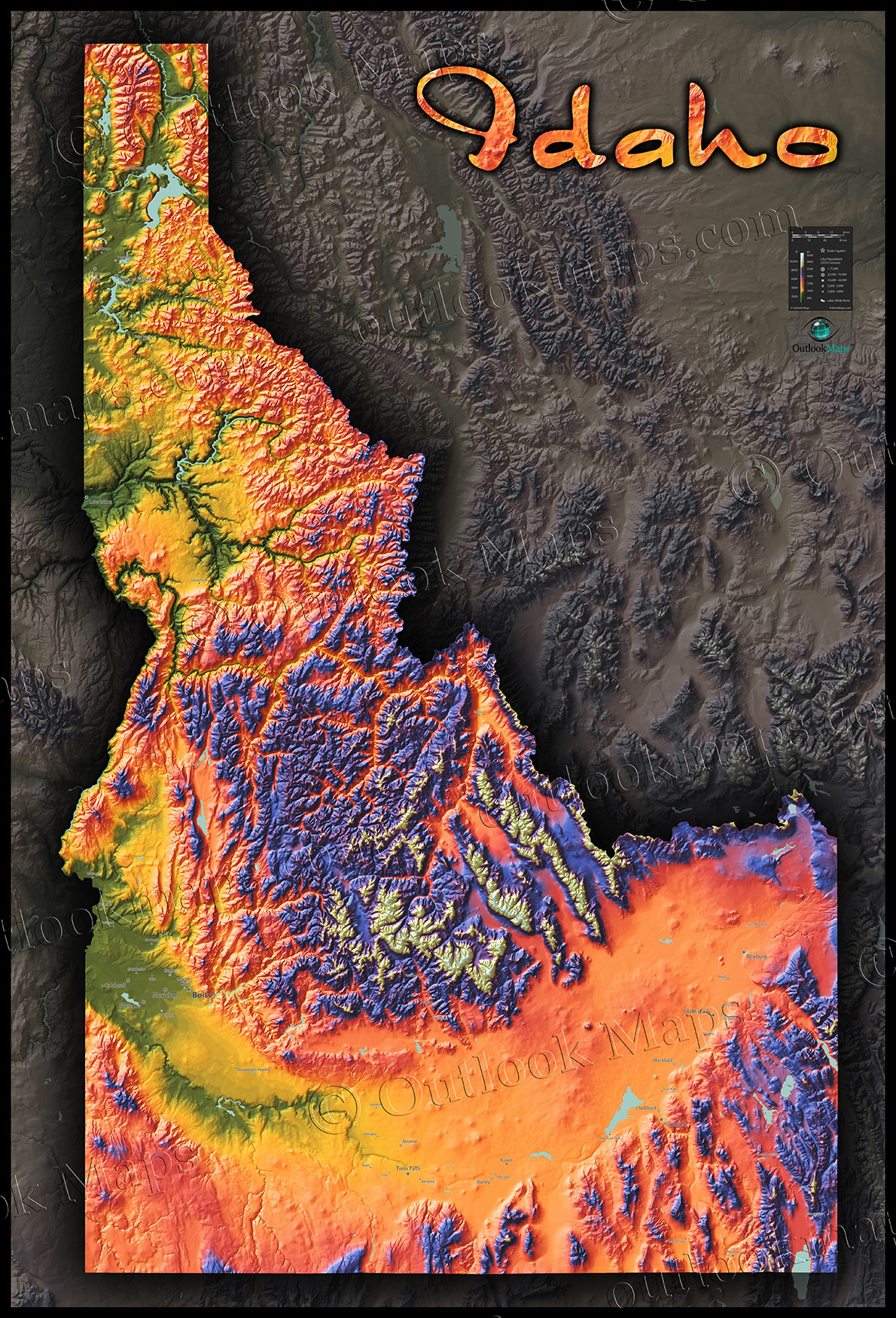
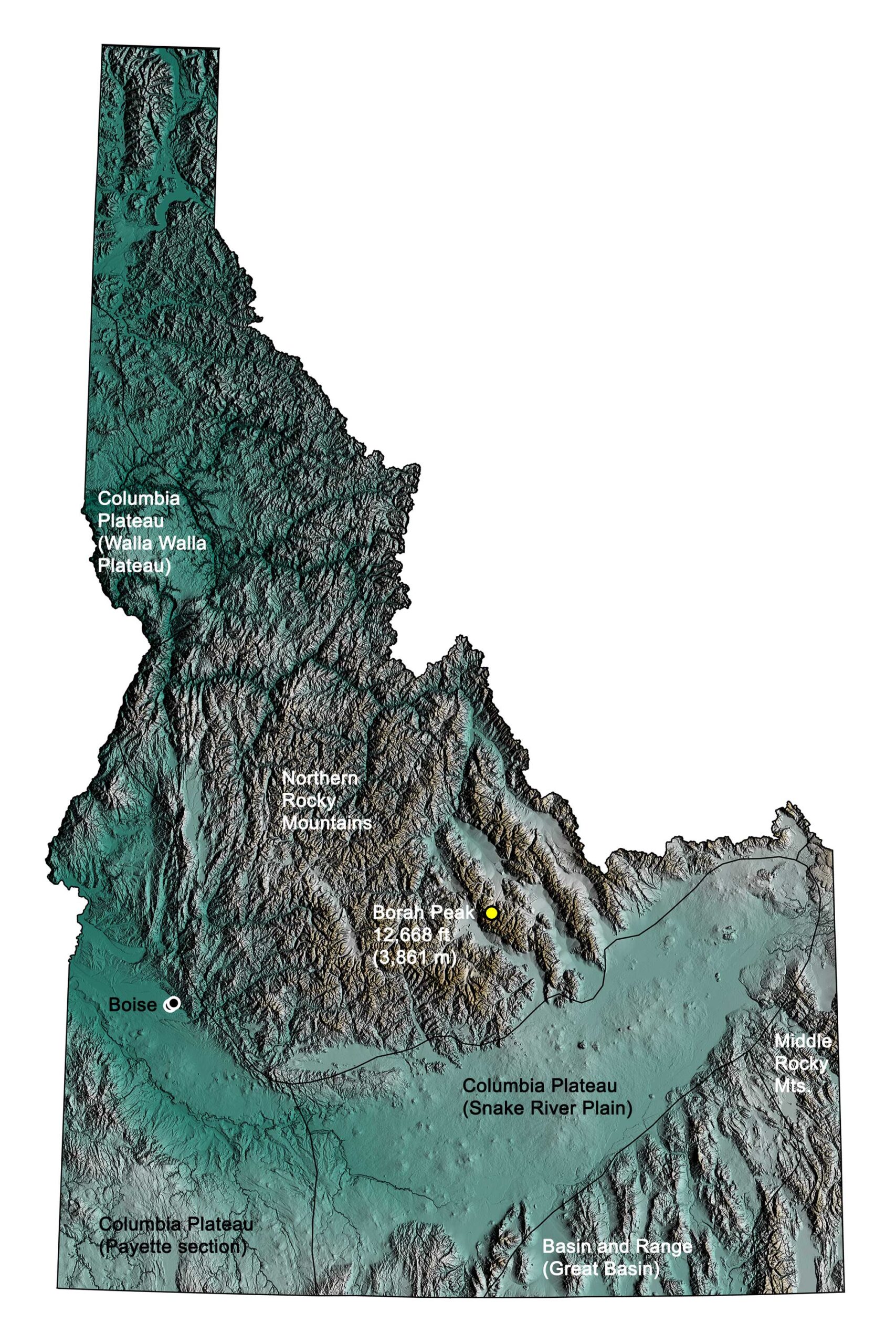
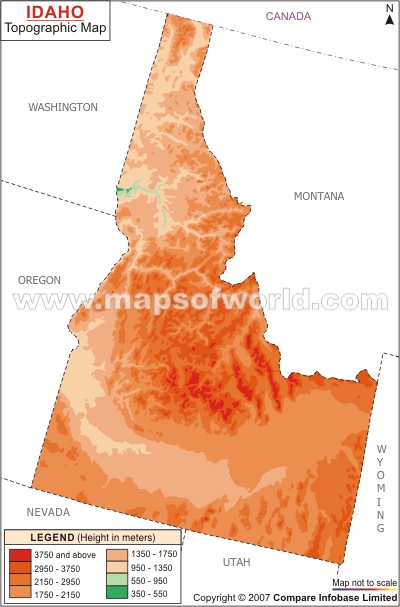
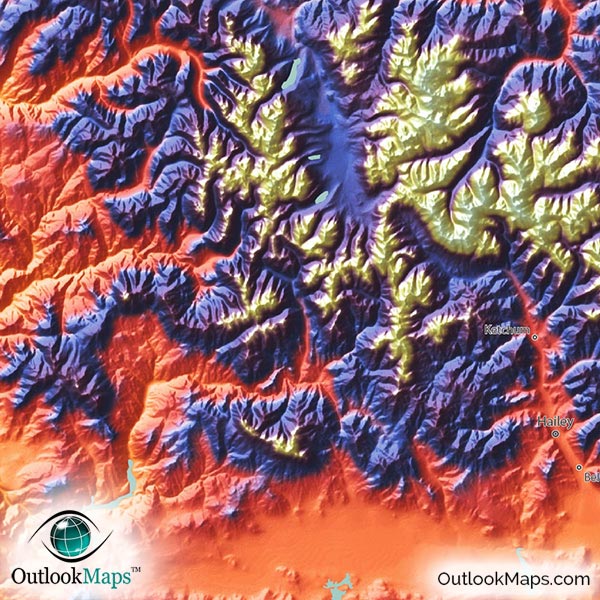

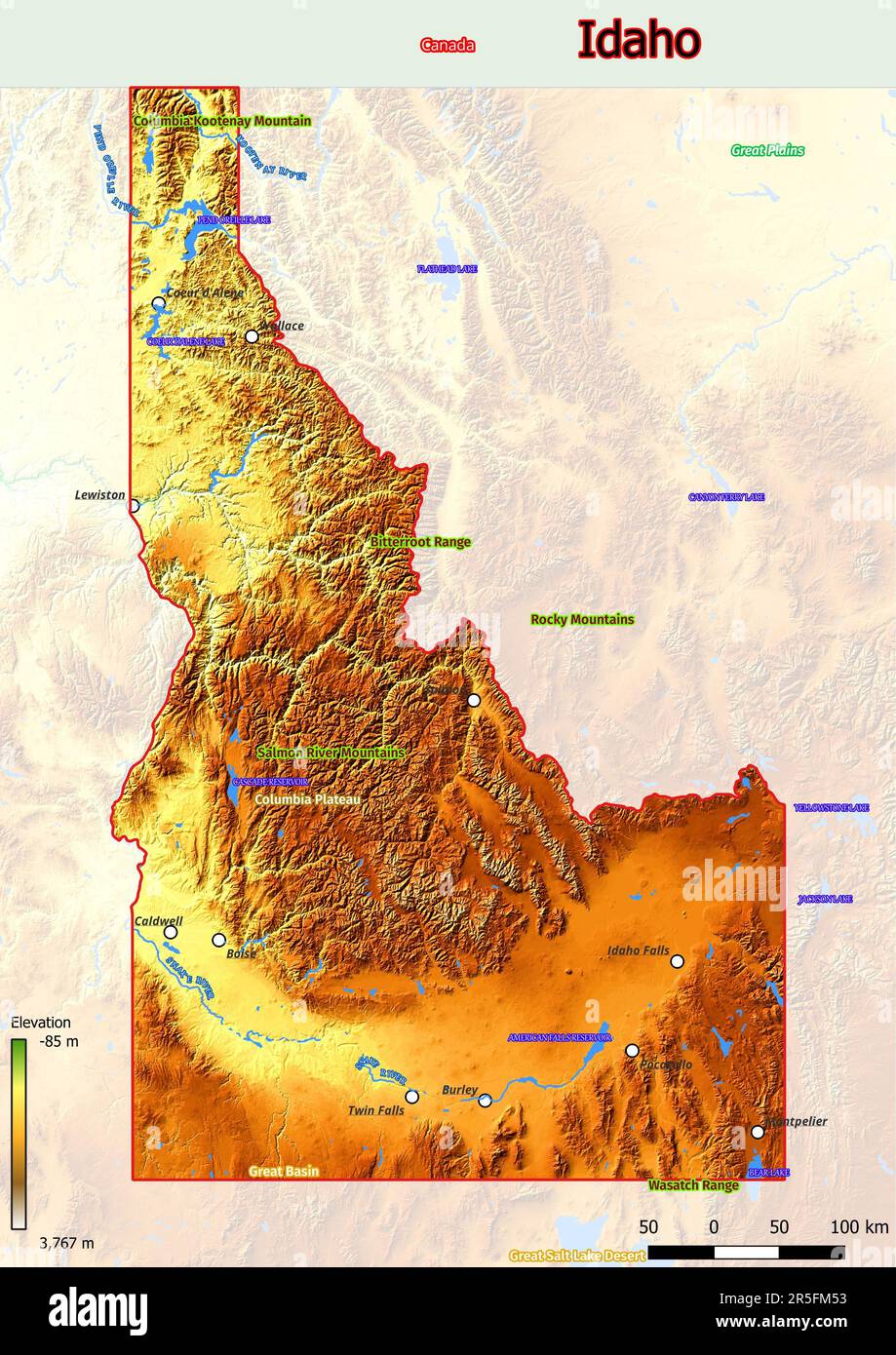


Closure
Thus, we hope this article has provided valuable insights into Unraveling the Topography of Idaho: A Journey Through Elevation. We appreciate your attention to our article. See you in our next article!